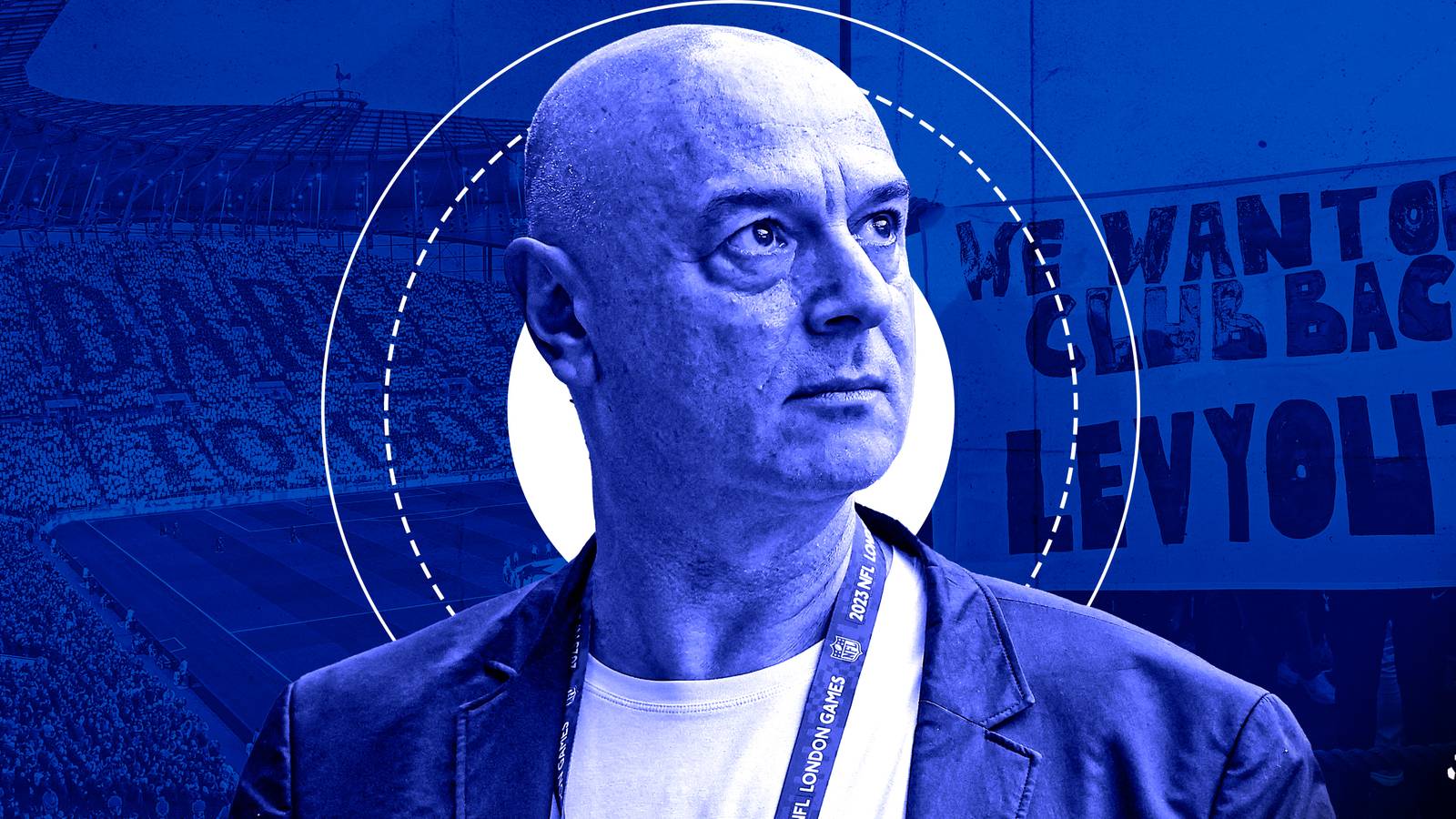The Daniel Levy era at Tottenham Hotspur has come to an end.
On Thursday, it was confirmed that the 63-year-old would step down as Executive Chairman after 25 years in charge, with the ownership believing change was needed to bring greater sporting success.
Appointed in March 2001, Levy was the longest-serving chairman in Premier League history and a divisive figure throughout his tenure.
Regularly the subject of supporter protests, his reputation was split between financial prudence and a failure to translate infrastructure into silverware.
Levy’s final months brought a rare high and an equally stark low. Spurs won the Europa League in May, ending a 17-year wait for a trophy.
Yet the triumph was underpinned by a disastrous league campaign that saw them finish 17th in the Premier League.
He will nevertheless be remembered for delivering the £1bn Tottenham Hotspur Stadium, a multi-purpose venue that transformed the club’s commercial revenues.
Hosting NFL games, concerts and boxing events, the stadium has become a global landmark.
On the pitch, however, Levy’s managerial decisions often defined Spurs’ fortunes more than infrastructure ever could.
This summer’s spending spree, with marquee signings like Mohamed Kudus and Xavi Simons, hinted at ambition, though Spurs missed out on Eberechi Eze to rivals Arsenal.
Vinai Venkatesham, appointed Chief Executive in April, now must take the reins and implement a new vision while the search for Levy's replacement is ongoing.
Ange and the many Managers of Levy’s Spurs
Few chairmen have hired and fired as many notable managers as Levy.
Ange Postecoglou, adored at times by supporters for his bold attacking football, was the latest casualty.
Sacked just weeks after lifting the Europa League, his dismissal came amid dire league form - 22 top-flight losses in 2024/25 - underlining Levy’s reputation for ruthless decision-making.
Thomas Frank has since arrived from Brentford to steady the ship. Postecoglou’s departure was far from Levy's only high-profile axing.
José Mourinho was dismissed just a week before Spurs faced Manchester City in the 2021 Carabao Cup final, a move that baffled many supporters.
Ryan Mason stepped in as caretaker manager, but Spurs ultimately lost the final.
Antonio Conte’s short but combustible tenure saw him openly question his players’ mentality, though he did guide them to Champions League qualification in 2021/22.
Levy also experimented with Nuno Espírito Santo, a project that fizzled out within months, and was also known to turn to well-known figures like Harry Redknapp and Tim Sherwood in the past.
Yet one name defined Levy’s Spurs more than any other, both in success and in the bitterness of his departure.
Sacking Pochettino was Levy's biggest mistale
Mauricio Pochettino’s time in North London was transformative.
Appointed in May 2014 as Spurs’ tenth manager in just 12 years, he brought stability, style and belief.
Over five years, he nurtured talents like Harry Kane and Dele Alli, built a fearless team around high pressing and rapid transitions, and took Spurs closer to glory than they had been in decades.
The pinnacle came in 2019 when Spurs reached the Champions League final.
Their run included an unforgettable semi-final comeback against Ajax, capped by Lucas Moura’s last-minute hat-trick strike.
Though they fell 2-0 to Liverpool in Madrid, it was a defining achievement.
In the league, Pochettino’s side finished second in 2016/17 with 86 points - their best finish since 1963 - only seven points behind champions Chelsea.
And yet, just months after that Champions League final, Levy made his most infamous call. With Spurs struggling at the start of the 2019/20 season, Pochettino was sacked.
It was a decision even more brutal than the one that ended Postecoglou’s reign. As journalist Alex Keble described him, Pochettino was a "genius" and a “very rare example of a manager genuinely being too good for a club.”
The Argentine later admitted he was shocked by Levy’s departure this week, reflecting fondly on their “very good” relationship.
After leaving Spurs, he managed PSG and then Chelsea, before taking charge of the US men’s national team.
His tactical philosophy remains consistent: a 4-2-3-1 built on pressing, playing out from the back, and suffocating opponents with relentless energy.
Pochettino gave Spurs an identity that carried them to the edge of greatness. Levy’s decision to sack him months after their greatest modern achievement left scars that arguably linger to this day.
It is unclear where Spurs go from here, but they undoubtedly have the commercial base to become something new altogether.
